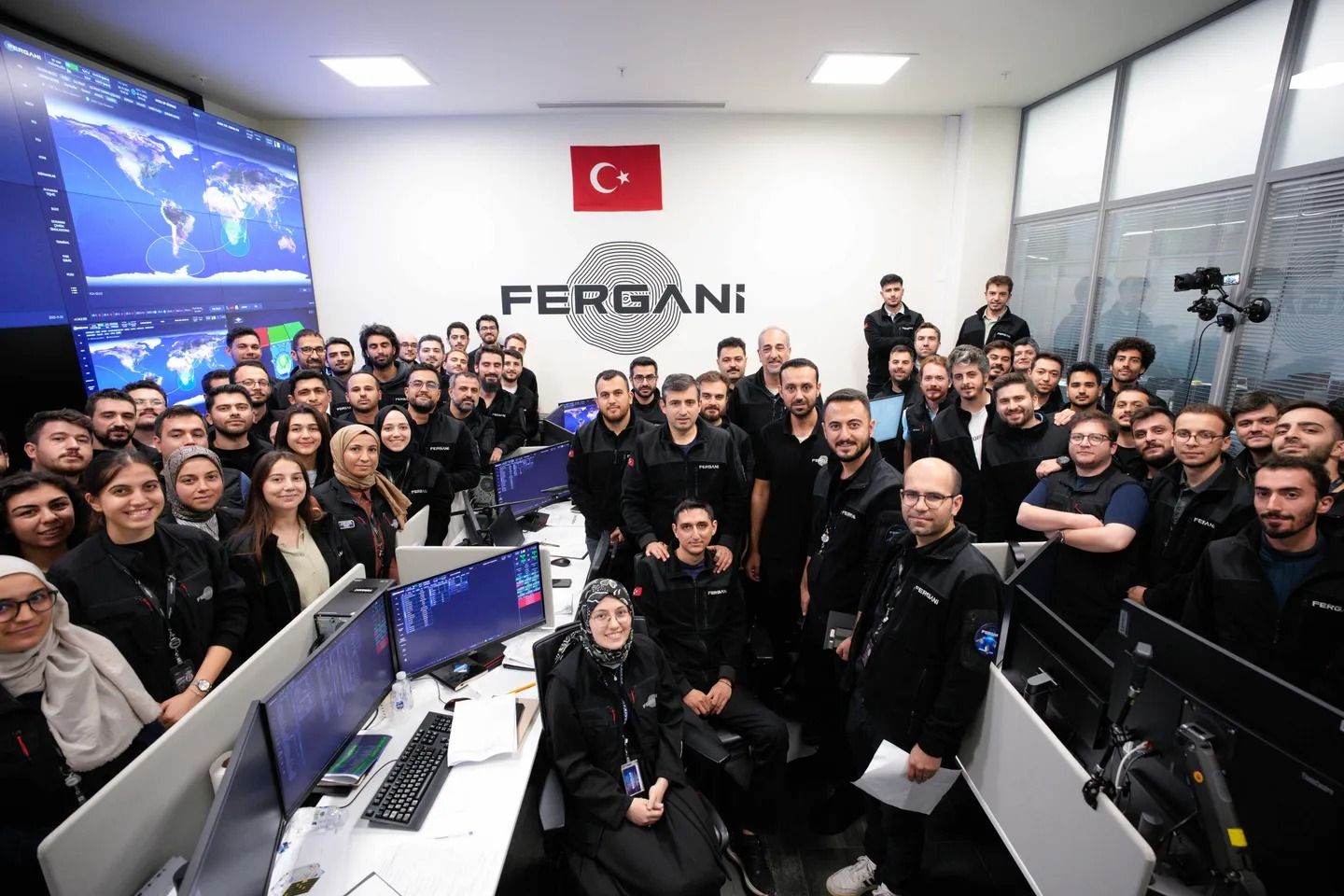By Alimat Aliyeva
Türkiye’s Fergani Space Technologies, founded by Selçuk Bayraktar, chairman and chief technology officer of the Turkish defense company Baykar, has successfully launched its second domestically developed satellite, FGN-100-D2, marking another significant milestone in the company’s growing satellite constellation project, Azernews reports, citing foreign media.
According to a statement released by Baykar, the FGN-100-D2 satellite was launched on Saturday from Cape Canaveral’s Space Launch Complex 40 (SLC-40) in the United States aboard SpaceX’s Bandwagon-4 mission. Weighing 104 kilograms, it is Türkiye’s largest private-sector satellite to date.
Roughly 74 minutes after liftoff, the satellite separated from the launch vehicle and successfully entered its designated orbit, transmitting its first telemetry data back to Earth, officially marking the start of its operations.
The launch was monitored in real time by Selçuk Bayraktar and his engineering team from the Space Observation and Control Center at the Özdemir Bayraktar National Technology Center in Istanbul.
This achievement follows the successful launch of Fergani Space’s first satellite, the 102-kilogram FGN-100-D1, on January 14, 2025, from Vandenberg Space Force Base in California as part of SpaceX’s Transporter-12 mission. That satellite also reached orbit successfully and began transmitting telemetry approximately 62 minutes after liftoff.
Bayraktar emphasized that the deployment of FGN-100-D2 marks an important step toward the creation of the Uluğ Bey Global Positioning System — a 100-kilogram-class test satellite platform developed entirely with national engineering and domestic resources.
Founded in 2022, Fergani Space employs 135 engineers and technicians and is rapidly becoming a cornerstone of Türkiye’s growing space industry ecosystem. Bayraktar noted that all engineering, systems design, and software integration for the satellites were performed in-house, and each satellite is expected to have an operational lifespan of five to seven years.
"Our goal is to deploy more than 100 satellites within five years and to provide an independent, domestically developed Uluğ Bey Global Positioning System to Türkiye and all friendly and allied nations," Bayraktar stated.
He also revealed that the company is developing an orbital transfer vehicle, which will soon undergo test flights alongside a small satellite. In addition, Fergani engineers are working on a fully independent launch vehicle, paving the way for Türkiye’s sovereign access to space in the coming decade.
Operating at an altitude of approximately 510 kilometers in low Earth orbit, the FGN-100-D2 travels at a speed of 7.6 kilometers per second, completing about 15 orbits around the Earth per day.
Developed entirely using domestic technologies, the satellite incorporates national avionics systems, locally integrated software, a green propulsion system, and advanced structural design. It will test a range of capabilities, including on-orbit operations, telemetry and telecommand communications, positioning accuracy, and payload data transmission, further advancing Türkiye’s ambitions in space technology and satellite autonomy.
Industry analysts describe Fergani’s rapid progress as a symbol of Türkiye’s determination to establish itself as a regional space power, following in the footsteps of its growing defense and drone industries, which have already drawn international attention.

